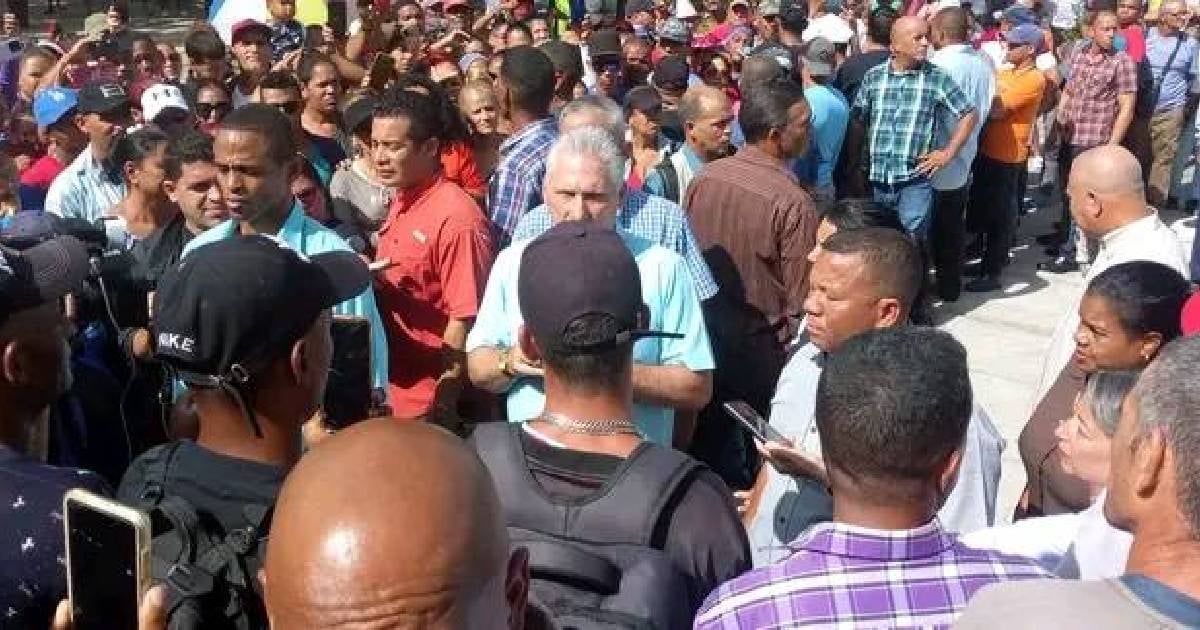During visits to the provinces of Granma and Camagüey, President Miguel Díaz-Canel openly admitted to the ongoing hardships endured by Cubans: extended power outages that further complicate daily life. "I am aware that yesterday many families here experienced over 20 hours of blackout," the leader stated on Thursday at the Ernesto Che Guevara polyclinic, located in Vado del Yeso, Río Cauto municipality, Granma province.
Díaz-Canel emphasized resilience, urging citizens to "overcome this situation" through unity and collective effort, according to a report from the Presidency's website. In Camagüey, official visits included two significant facilities for the food system: the Taíno Cheese Factory in the Martí community of Guáimaro municipality and the Sibanicú Dairy Complex, the largest cheese plant in the country.
Both facilities are operating below capacity due to power outages that disrupt production shifts. At the Martí plant, production only occurs when electricity is available, thanks to an emergency alert plan. In Sibanicú, the factory's output is "currently restricted by insufficient milk collection for production and the challenges posed by power cuts."
Recently, it was reported that Camagüey province, once Cuba's largest milk producer, has seen its annual output plummet to less than half of the 92 million liters produced in 2019. Additionally, more than 15% of cooling tanks are out of service. The collection center in this region is forced to convert milk into cheese to prevent losses, while cold storage facilities and trucks operate at significant extra costs.
Back in March, during a visit to the Martí municipality in Matanzas province, Díaz-Canel acknowledged that the local population was enduring power cuts lasting up to 32 consecutive hours, leading to growing frustration among residents.
In provinces like Pinar del Río, blackout durations have reached alarming levels. Officials from the local Electric Company reported some circuits experiencing outages exceeding 30 consecutive hours.
In a recent interview with Brazilian journalist Breno Altman, Díaz-Canel conceded that the national electrical system is in a critical state. The energy crisis in Cuba has sparked unprecedented public outrage, as blackouts lasting over 24 continuous hours in some areas have pushed residents to the brink of physical and emotional exhaustion.
Amidst this dire situation, Russian Energy Minister Serguéi Tsiviliov pledged to support the modernization of Cuba's energy system, including the construction of a new 200-megawatt (MW) generating unit and the repair of existing 100 MW blocks, according to reports from outlets like Telesur and News Rambler.
This Friday, June 20, Cuba faces another day of energy emergency, marked by widespread blackouts across the country. The UNE estimates a peak demand of 3,500 MW with only 1,910 MW available, resulting in a deficit of 1,590 MW.
Understanding Cuba's Energy Crisis
What are the main causes of the power outages in Cuba?
The power outages in Cuba are primarily caused by insufficient electricity generation capacity, aging infrastructure, and frequent equipment failures. The situation is exacerbated by the economic challenges the country faces, limiting the ability to invest in necessary upgrades and maintenance.
How is the Cuban government addressing the energy crisis?
The Cuban government is working on modernizing its energy system, with plans to construct new generating units and repair existing ones. Additionally, there is an emphasis on increasing efficiency and promoting unity among citizens to withstand the ongoing challenges.
What impact have the blackouts had on Cuba's food production?
The blackouts have significantly hindered food production, particularly in facilities like cheese factories that rely on constant power. Disruptions in electricity supply lead to reduced production capacity and increased operational costs.
